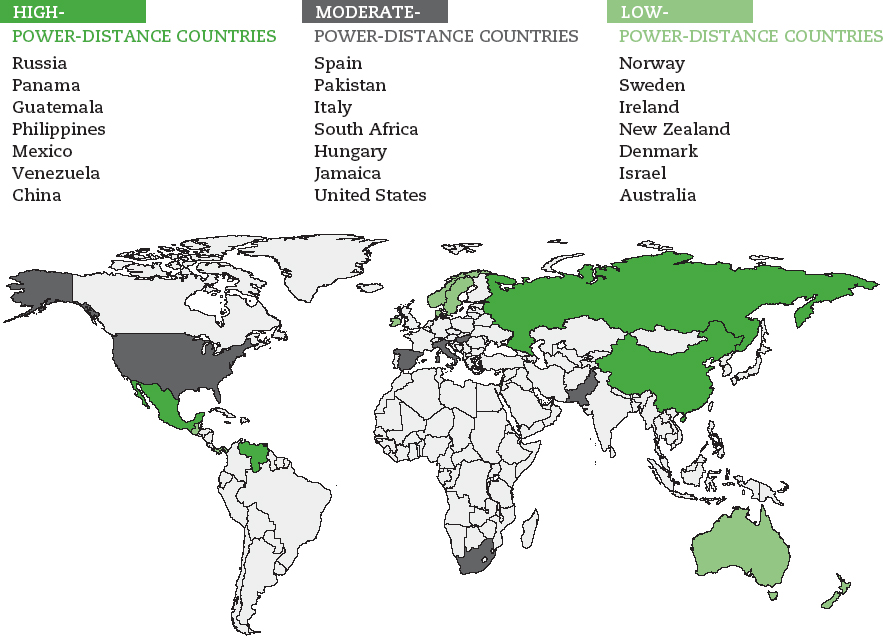Power Distance
The degree to which people in a particular culture view the unequal distribution of power as acceptable is known as power distance (Hofstede, 1991, 2001). In high-power-distance cultures, it’s considered normal and even desirable for people of different social and professional status to have different levels of power (Ting-Toomey, 2005). In such cultures, people give privileged treatment and extreme respect to those in high-status positions (Ting-Toomey, 1999). They also expect individuals of lesser status to behave humbly, especially around people of higher status, who are expected to act superior.
In low-power-distance cultures, people in high-status positions try to minimize the differences between themselves and lower-status persons by interacting with them in informal ways and treating them as equals (Oetzel et al., 2001). For instance, a high-level marketing executive might chat with the cleaning service workers in her office and invite them to join her for a coffee break. See Figure 5.1 for examples of high-, moderate-, and low-power-distance cultures.
Power distance also affects how people deal with conflict. In low-power-distance cultures, people with little power still may choose to engage in conflict with high-power people. For instance, employees may question management decisions, or townspeople may attend a meeting and argue with the mayor. These behaviors are less common in high-power-distance cultures (Bochner & Hesketh, 1994).

Power distance also influences how people communicate in close relationships, especially families. In traditional Mexican culture, for instance, the value of respeto emphasizes power distance between younger people and their elders (Delgado-Gaitan, 1993). As part of respeto, children are expected to defer to elders’ authority and to avoid openly disagreeing with them. In contrast, many Euro-Americans believe that, once children reach adulthood, power in family relationships should be balanced—with children and their elders treating one another as equals (Kagawa & McCornack, 2004).
Self-Reflection
Consider your own comfort with power distance. Are you comfortable communicating with individuals who are better educated or more established than you are? (e.g., Can you chat openly with a professor you admire?) What cultural or co-cultural factors help to determine your response?